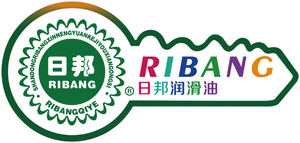- English
- 简体中文
- Esperanto
- Afrikaans
- Català
- שפה עברית
- Cymraeg
- Galego
- 繁体中文
- Latviešu
- icelandic
- ייִדיש
- беларускі
- Hrvatski
- Kreyòl ayisyen
- Shqiptar
- Malti
- lugha ya Kiswahili
- አማርኛ
- Bosanski
- Frysk
- ភាសាខ្មែរ
- ქართული
- ગુજરાતી
- Hausa
- Кыргыз тили
- ಕನ್ನಡ
- Corsa
- Kurdî
- മലയാളം
- Maori
- Монгол хэл
- Hmong
- IsiXhosa
- Zulu
- Punjabi
- پښتو
- Chichewa
- Samoa
- Sesotho
- සිංහල
- Gàidhlig
- Cebuano
- Somali
- Тоҷикӣ
- O'zbek
- Hawaiian
- سنڌي
- Shinra
- Հայերեն
- Igbo
- Sundanese
- Lëtzebuergesch
- Malagasy
- Yoruba
- Español
- Português
- русский
- Français
- 日本語
- Deutsch
- tiếng Việt
- Italiano
- Nederlands
- ภาษาไทย
- Polski
- 한국어
- Svenska
- magyar
- Malay
- বাংলা ভাষার
- Dansk
- Suomi
- हिन्दी
- Pilipino
- Türkçe
- Gaeilge
- العربية
- Indonesia
- Norsk
- تمل
- český
- ελληνικά
- український
- Javanese
- فارسی
- தமிழ்
- తెలుగు
- नेपाली
- Burmese
- български
- ລາວ
- Latine
- Қазақша
- Euskal
- Azərbaycan
- Slovenský jazyk
- Македонски
- Lietuvos
- Eesti Keel
- Română
- Slovenski
- मराठी
- Srpski језик
Common Approvals and Standards for Lubricants
2024-10-18
https://www.sdrboil.com/fully-synthetic-or-synthetic-turbine-oil-sp-5w-30.html
Common Approvals and Standards for Lubricants

SAE Society of Automotive Engineers
A scholarly society with significant influence on the U.S. and world automotive industry (including aerospace and marine), and one of the world's resources for technical information on automotive, marine, and aviation/aerospace transportation machinery. Each year, a large number of standard materials, technical reports, parameters (tools) books and special publications, built a huge database.

1, 0W-40 viscosity is suitable for more than 95% of the vehicles, the generality is very good;
2, 0W-30 is the development trend of luxury car engine, 0W-20 is suitable for Land Rover, Volvo, Japanese;
3, 5W-40 suitable for German cars and other vehicles SUV; 5W-30 suitable for the United States, Japan and South Korea; 5W-20 suitable for Japanese; 5W-30 and 5W-20 plus the majority of Audi will quickly become thin oil burning, etc.; 5W40 to join the United States, Japan and South Korea, the resistance will be greater;
4, synthetic technology is generally two types of base oil to add a small amount of three types of base oil, you can enhance the quality of engine oil.

Vehicle replacement engine viscosity, will lead to vehicle shaking or valve rattling;
Using an oil with a greater viscosity than recommended in the owner's manual dues gasoline and slower acceleration;
Using an oil with a lower viscosity than recommended in the owner's manual will result in a loss of sealing and lack of power, accompanied by oil burning in some vehicles.
API Certification
American Petroleum Institute, the largest U.S. trade association for the oil and gas industry, was founded in 1919, is the first U.S. national business associations, but also the world's earliest and most successful standard-setting Chamber of Commerce, is committed to the establishment of industry standards and certifications, which is one of the important tasks, is responsible for the standardization of equipment for the oil and gas industry.

The API number represents the quality level, but it should be noted that the quality level here does not directly represent the anti-wear effect, but rather the “threshold of comprehensive quality”, including the environmental rating.
API numbers are divided into gasoline engine oils beginning with “S”, diesel engine oils beginning with “C”, and oils with both “S” and “C”. “S” ‘C’ diesel engine oil, and ‘S’ ‘C’ at the same time with a certain range of gasoline, diesel oil compatible with the general-purpose lubricants.
The API numbers of gasoline engine oils beginning with “S” are: SA, SB, SC, SD, SE, SF, SG, SH, SJ, SL, SM, SN, SP.

SP has higher requirements for low-speed premature combustion, timing chain wear, engine power density increase, and high-temperature characteristics of the oil. Compared with SN, the fuel economy performance is improved by 25%, the phenomenon of low-speed premature combustion is effectively reduced, the timing chain wear protection, cleaning performance is improved by 14%, and the high-temperature viscosity thickening control ability is improved by 33%.
ACEA European Automobile Manufacturers Association
Headquartered in Brussels, Belgium. Is the European automobile manufacturing industry for automotive lubricant inspection and certification standards, Europe in the nineties a large number of automobile manufacturing manufacturers of the reorganization, from January 1996 onwards, the original old European lubricant inspection and certification standards CCMC norms and standards by the ACEA to replace. Previously, as long as the principle of the company has set up factories in Europe, you can join the CCMC members and participate in the certification. Now it is strictly required to be manufactured in Europe must be eligible to participate in the ACEA membership and certification of automobiles, representing the world's advanced technical standards of lubricants.

ACEA Quality Grade Standard:
A = gasoline engine for cars.
B = diesel engine for cars.
C=gasoline and light-duty diesel engines with aftertreatment systems, E=diesel engines for trucks.
E=Diesel engines for trucks;
The first number indicates the quality: 1=special requirements, 2=general requirements (standard), 3=strict requirements.
Common certifications are:

High ash content:
A3B3 A3B4: German French, shear value of 3.5 or more, high viscosity, generally 30-40 viscosity certification;
A5B5: U.S. Department of Europe, anti-shear value of 3.1 or more, low viscosity, generally 20-30 viscosity certification;
A7B7: High-end products, high performance and fuel economy.
Low and medium ash:
C2/C3: generally certified for 30 viscosity;
C5: generally certified for 20 viscosity.
C6: fuel economy
ILSAC International Lubricants Standardization and Accreditation Committee
The International Lubricants Standardization and Accreditation Committee (ILSAC) was established in the early 1990s as a joint initiative of the American Automobile Manufacturers Association (AAMA) and the Japan Automobile Manufacturers Association (JAMA). The specifications for gasoline engine oils are GF-1, GF-2, GF-3, GF-4, and GF-5. GF-1, GF-2, GF-3, GF-4, GF-5, and GF-6 not only satisfy all the requirements of API SH, SJ, SL, SM, SN, and SP respectively, they also have to pass the energy-saving requirements of EC stipulated by ILSAC. Simply put GF specification is API specification + energy saving requirements.

ILSAC recommends that automotive consumers use XW-30, XW-20 or lower viscosity oils to achieve fuel savings (XW40 oils are not ILSAC certified).
OEM Certification
OEM certifications are the certifications of the major automobile manufacturers and are now the most important of all certifications. All certifications have the following seven key indicators for motor oils: soot resistance (meaning it is less likely to lead to incomplete combustion), anti-wear, dispersion of piston deposits, oxidation resistance, fuel economy, and exhaust aftertreatment compatibility (reducing sulfates, phosphorus, and other constituents. Simply understand low sulfur, low phosphorus and low ash, the so-called three lows), anti-sludge.

Volkswagen Group: VW 50200 /VW50500 VW50101/50500 VW50800/50900
Mercedes-Benz Group: MB 229.5/MB229.3/MB229.7/MB229.6/
BMW Group: BMW longlife 01 04 etc.
Porsche: A40 C30
General Motors: Dexos X
Ford: Ford WSS-M2C937-A
Renault: RN0700/710
In order of certification qualification: OEM certification > ACEA (European Standard Certification) > API (American Standard Certification)







